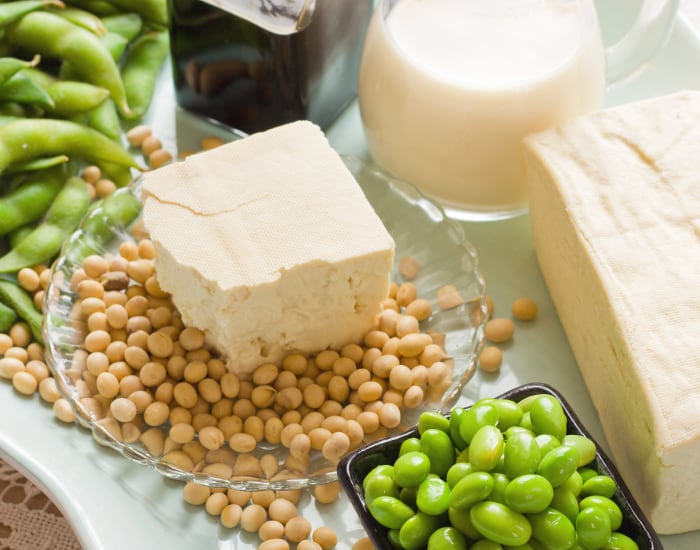International non-profit the Good Food Institute Europe (GFI Europe) analysed NielsenIQ data, finding sales of plant-based meat grew to €2 billion in 2022 – accounting for 6% of the overall pre-packaged meat market – while other categories, including plant-based seafood and cheese, saw double-digit growth.
The countries analysed were Austria, Belgium, Denmark, France, Germany, Italy, Netherlands, Poland, Portugal, Romania, Spain, Sweden and the UK.
But plant-based options still represent a tiny proportion of the market. The report found plant-based milk is the most developed category, now making up an impressive 11% of the overall milk market, with sales growing by 19% between 2020 and 2022 – almost twice as much as conventional milk – to reach €2.21 billion last year. This category was less badly affected by inflation, with plant-based milk prices increasing by 1% last year, while conventional milk increased by 17%. While plant-based milk unit sales grew 20% between 2020 and 2022, conventional milk unit sales decreased by 9% in the same period.
Market shares are lower in other categories. In 2022, plant-based meat had a 6% market share of the total retail pre-packaged meat category; plant-based cheese had a 0.4% market share of the total cheese category; and plant-based yoghurt had a 3% market share of the total yoghurt category. Meanwhile, while Europe-wide plant-based food sales grew in the period looked at, that growth has slowed from 15% in 2021 to 6% in 2022.
Carlotte Lucas, GFI Europe's senior corporate engagement manager, told FoodNavigator she believes there is still ‘very real potential for plant-based foods to become mainstream, as long as companies can meet mainstream consumers' expectations’.
"Consumers across Europe want foods that are sustainable and delicious,” she said. “Last year GFI commissioned a survey, carried out by OpinionWay, that found that more than half of consumers in France, Italy, Spain and Germany had reduced their consumption of conventional meat over the past five years. Perhaps more tellingly, more than 60% of those surveyed across all four countries said alternatives were needed to the production of conventional meat.
"These options currently make up a tiny fraction of the overall market because most consumers don't want to compromise on taste, price or convenience, even though they do care about sustainability,” Lucus added. “For the 13 European countries we analysed, plant-based meat has a 6% market share of the overall pre-packaged meat market, and plant-based milk has an 11% market share of the overall milk market. To grow the market share of sustainable proteins and compete with conventional animal products, companies need to develop more delicious, affordable and accessible plant-based foods.”
The need to achieve wider appeal
Unit sales of plant-based yoghurt grew by 16% between 2020 and 2022, while conventional yoghurt sales decreased by 4%. The average price of plant-based yoghurt increased by 2%, whereas conventional yoghurt prices increased by 10% last year.
Plant-based seafood unit sales expanded by over 300% in this period. While this is the fastest growing category, it remains the least developed, with sales of just €43 million in 2022 – but the average price per unit dropped by 4% last year.
There were also advances in categories such as plant-based cream, ice cream and ready meals – which saw sales values increase by 79% from 2020 to 2022.
"There is cause to be optimistic,” continued Lucas. “Both the value and volume of plant-based sales continued to grow in 2022, despite prevailing economic headwinds. This is in stark contrast with animal-based products, where both conventional milk and meat saw a 4% decrease in unit sales. This suggests that there is a strong contingent of consumers who are prioritising sustainability – but to maintain this growth, companies will need to achieve wider appeal.”
GFI Europe is also calling for more public and private investment in research and infrastructure to scale up production and reduce prices. The organisation further claimed that research has found that plant-based meat causes up to 98% less emissions and uses up to 93% less land and 99% less water than conventional meat.
“European companies and governments have a critical role to play in supporting consumers to make more sustainable choices. Companies must continue investing in product innovation to develop delicious and affordable plant-based options,” Lucas said. “And governments must invest in the research and infrastructure we need to reduce prices and improve the quality of plant-based options, in order to deliver on their climate targets and enhance food security.”





